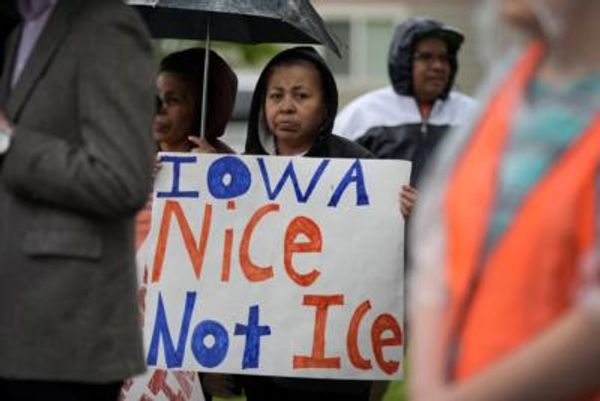
Later tonight, the State of Israel will be hauled before a court — for the first time since beginning its bombardment and occupation of Gaza — to answer a claim that what it is doing breaks the law.
To clear up one misconception, this is not the International Criminal Court (ICC). Nobody has yet been charged with committing genocide, a war crime or a crime against humanity. The ICC’s jurisdiction allows for the conviction and sentencing of individual perpetrators of such crimes. It has confirmed that it has been investigating the “situation” since 2021 and is considering the current conflict within that scope, but nobody has been charged.
Also important is that Israel is not a signatory to the treaty that established the ICC, and doesn’t recognise its jurisdiction (neither does the USA). Don’t expect any Israeli leaders to voluntarily submit to it.
The case on foot is in the International Court of Justice (ICJ), which does have jurisdiction over Israel and every other member state of the United Nations. The ICJ deals with cases brought by member states against each other.
South Africa is the moving party. The nub of its complaint is this:
The acts and omissions by Israel complained of are genocidal in character because they are intended to bring about the destruction of a substantial part of the Palestinian national, racial and ethnical group … in the Gaza Strip.
This, South Africa alleges, has placed Israel in violation of the Genocide Convention, to which both countries are parties. The key question being put in front of the court is whether Israel is committing, or failing to prevent genocide.
This breaks down into several more specific factual allegations: that Israel is killing Palestinians, causing serious mental and bodily harm to them, engaging in their mass expulsion from homes and displacement, depriving them of access to adequate food, water, shelter, hygiene, sanitation and medical assistance, destroying “Palestinian life in Gaza”, and imposing measures intended to prevent Palestinian births. Basically, the full shopping list for genocide — not the worst case of systematic extermination, but that isn’t required to satisfy the legal definition.
Obviously, South Africa is not itself directly affected by what’s happening in Gaza; however, the ICJ considers that all countries have an interest in violations of the Genocide Convention and can therefore properly institute a claim.
It’s all a bit legally clunky, for one basic reason: the ICJ is not a criminal court. The legal form of the case is a dispute between two states over the interpretation of the Genocide Convention, on the basis that South Africa believes that Israel is violating it and Israel maintains it is not. The legal debate consequently has a somewhat abstract tone, far less focused and granular than would be the case in, for example, an ICC prosecution of individuals for committing acts of genocide.
Still, it’s all there is, at least for now. The ICJ is a proper court and can make binding findings and orders. The orders are declaratory — for example, it can declare that Israel is violating the Genocide Convention (or not).
When the case comes before the court on January 11 to 12, it will be asked to grant “provisional measures”. South Africa is imploring the court to accept the validity of its claim sufficiently at this stage to take immediate action to prevent further harm, while everyone prepares for a fully contested hearing down the track.
South Africa’s requests include that Israel be ordered to suspend its military actions in Gaza, stop killing Palestinians, stop displacing them and stop depriving them of access to food, water, etc (i.e. end the blockade).
The ICJ can order other provisional measures if it wishes. If it is persuaded that South Africa’s underlying case has merit and there is good cause for trying to mitigate the ongoing harm in the interim, it will probably then undertake a balancing act I don’t envy: weighing to what extent Israel remains entitled to pursue its own self-defence in response to the Hamas atrocities of October 7, against the undeniable suffering being inflicted on the civilian Palestinian population in Gaza.
What will Israel do if the ICJ makes orders against it? Nothing. The court has no power to enforce its decisions, and they are routinely ignored in cases like this.
That realpolitik truth raises the question of whether the ICJ case has any value beyond the performative. The rule of law is nonsense if we feel free to ignore its institutions, and it can be validly asked what, actually, the United Nations has ever achieved in the field of human conflict. I mean, how many wars has it prevented or stopped?
Do its instruments, like the ICJ, which take on the forms of legality but have no actual power do more harm than good by offering a fig leaf with “rule of law” stamped on it?
I wonder about that. My lawyer instinct says that law for show is just a show.






